October 10, 2019
Billboard Launches First-Ever Merch Store
It’s part of a growing trend among publishing brands that promo products professionals could capitalize on.
Billboard, the popular print and online media source for music news, has launched its first-ever online store for branded merchandise.
Check out the new Billboard Merch Store below! https://t.co/LpBkJfhP8w
— billboard (@billboard) October 9, 2019
The move is notable as it marks another pillar of the traditional publishing world turning to merch as a revenue stream. In that, there’s potential opportunity for the promotional products industry.
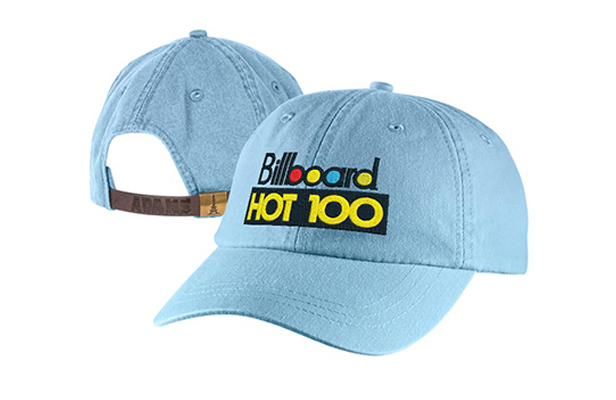
Billboard vintage Hot 100 logo hat.
The Billboard Merch Store features T-shirts, drinkware and caps, including on-trend dad hats (see above). The new collection is classified into categories like “comic,” “classic,” “retro” and “Hot 100” – the latter a nod to one of Billboard’s music sales charts, which is among the publication’s most recognizable and enduring creations. Despite the categories, retro/vintage-style graphics dominate much of the line, with T-shirts displaying cassettes, “boomboxes,” references to the 1980s and bold, geometric coloring endemic of that decade.
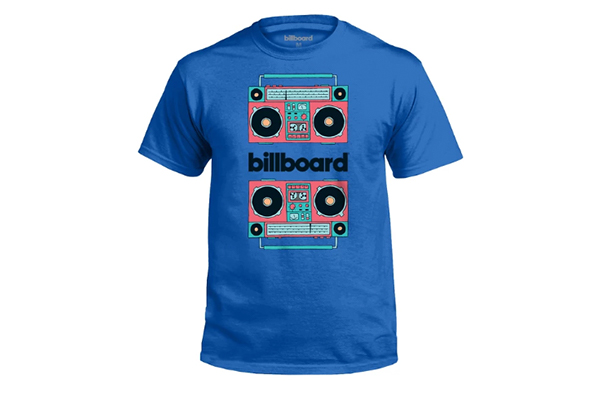
Retro boomboxes T-shirt from Billboard.
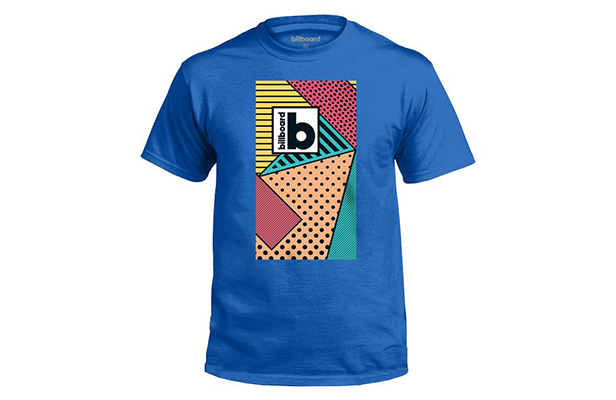
Retro pop art tee from Billboard.
For the store, Billboard partnered with TWG Konnect, the ecommerce division of The Wildflower Group, a Hoboken, NJ-based licensing and consulting agency that aims to deliver best-in-class product extensions and collaborations for brands and manufacturers. TWG Konnect also runs web stores for Discovery, Piper Lou and Mathew Berry’s Fantasy Life.
Billboard is among the growing list of notable so-called “old media” brands trying to capitalize on strong brand cachet through online merch. The New York Times, for instance, is a leader in this regard, having a collection of retail promotional products that include everything from wool caps and onesies, to T-shirts, crewneck sweatshirts, drinkware, tote bags, aprons and more.
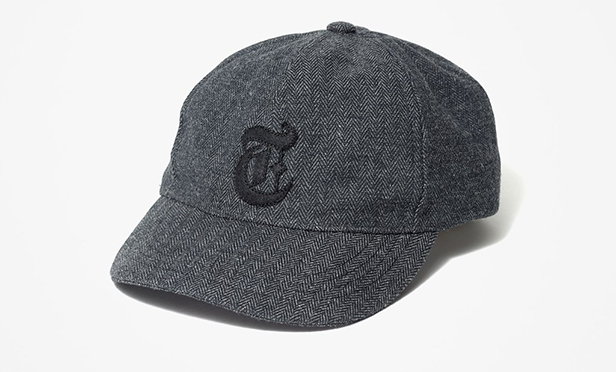
Super “T” wool baseball cap from The New York Times.
The Washington Post is also in on the ecommerce swag act, selling shirts that bear the tagline “Democracy Dies in Darkness.” The Post’s webstore proclaims that each purchase “supports journalism that matters.”
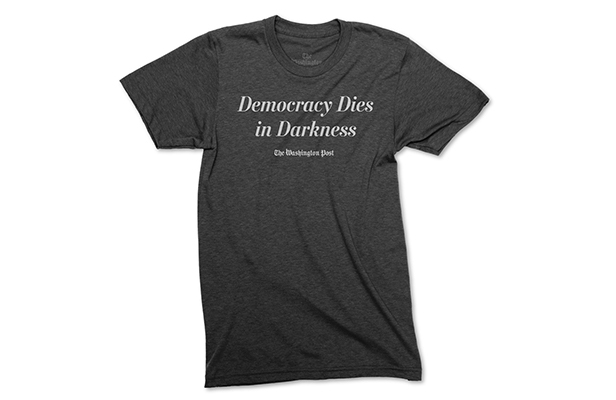
Democracy Dies in Darkness’ shirt from The Washington Post.
For promotional products distributors, such developments signal that there’s opportunity to create similar web stores for media clients increasingly interested in monetizing their brands as they carve out new revenue niches amid a digital age transformation that has seen traditional print revenue decline. One potential route might be to connect with a media company that owns local publications throughout the nation, and then create merch-stocked web stores for each of its media brands to retail to their local audiences. Independent and niche publications with a devoted audience are other avenues to purse.